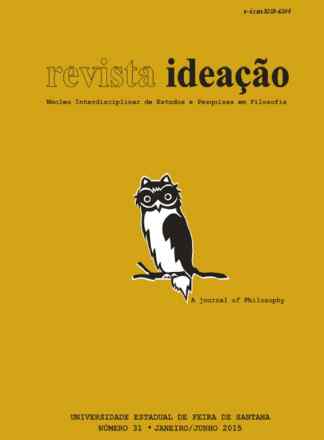O PROBLEMA DA PARTICIPAÇÃO DOS CATÓLICOS NO PODER POLÍTICO EM LOCKE
Revista Ideação
O PROBLEMA DA PARTICIPAÇÃO DOS CATÓLICOS NO PODER POLÍTICO EM LOCKE
Autor Correspondente: Mykael Morais Viana | [email protected]
Palavras-chave: Política, Catolicismo, Tolerância, Infalibilidade, Religião
Resumos Cadastrados
Resumo Português:
O presente trabalho tem por objetivo analisar os posicionamentos do filosofo inglês John Locke com relação à participação dos Papistas, ou Católicos, no poder político. Locke buscou estabelecer diretrizes para a ação do Estado em sua relação com a religião. Para ele, a tolerância religiosa é um elemento fundamental para a construção de uma boa sociedade e ela só poderá se estabelecer quando Estado e religião forem esferas completamente distintas. Porém, existem elementos na religião que podem ser nocivos ao bom andamento da Sociedade. Um exemplo de elemento nocivo dentro da religião é quando seus membros atribuem a si mesmos a soberania política fundamentada na infalibilidade de sua crença. Além disso, alguns religiosos afirmam que o líder da sua religião tem poder político superior ao poder público. Para Locke, quando isso acontece, a soberania do Estado está em risco, pois os cidadãos recusam-se a submeter-se ao poder público, argumentando que a única autoridade possível é a religiosa. É devido a isso que Locke enxerga no Catolicismo a fonte de problemas para a organização política. Apresentaremos aqui as principais razões de Locke para atacar o Papismo tendo como foco suas obras políticas.
Resumo Inglês:
This study aims to analyze the positions of the English philosopher John Locke respecting the participation of Papists, or Catholics, in political power. Locke sought to establish guidelines for state action in its relation with religion. For him, religious tolerance is a key element for building a good society and it can only be established when state and religion are completely different spheres. However, there are elements in religion that can be harmful to the smooth running of the community. A harmful element of example within the religion is when its members give themselves political sovereignty based on the infallibility of their belief. In addition, some religious claim that the leader of his religion has superior political power to the government. For Locke, when that happens, the state's sovereignty is at risk because the citizens refuse to submit to the government, arguing that the only possible authority is religious. It is due to this that Locke sees in Catholicism a source of problems for the political organization. We present here the main reasons for Locke to attack Papism focusing their political works.

